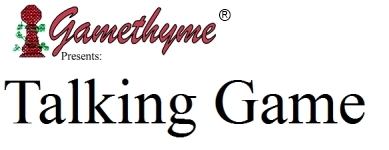Those of you who've been reading this blog for a while know that I have a weakness for classic games.
Mah Jongg
continues to be a favorite of mine (and of nearly everyone I've played it with).
A few weeks ago, while cleaning the apartment, I stumbled across one of my
Rook
decks. Rook is a game I used to play with my great-grandparents. I hadn't played in many years, so I took it to Game Night.
Only one other person there had played before. After a few seconds of discussion, I learned that we played it differently. After referring to the rulebook, I discovered that neither of us played what is the default - "Tournament Rook."
See, when she played, the deck used all 57 cards, and the counters are 14, 10, 5, and the Rook itself. The Rook is considered to be the highest trump card.
In my family, we also used all 57 cards, the counters were 13, 10, 5 and the Rook itself. And the Rook was the lowest trump card.
In Tournament Rook, you remove 1-4 from the deck. The counters are 14, 10, 5, and the Rook (If the Rook is being used). If it's in play, the Rook is the high trump.
I wrote a few months ago about
House Rules. I don't know that any of these could be considered house rules - they're more like regional variations. The "Tournament Rook" rules are "official," as handed down by Parker Brothers and Hasbro. The book included a number of common variants (not including the one I grew up playing).
So why are there so many variations?
My wife and I are reading
The Westing Game
together. More accurately, she's reading it to me as we drive home from work some evenings. It's a book I loved growing up, and she's never read it. Even now, more than twenty years later, I'm enjoying it.
At one point in the book, there is a discussion about the phrase, "May God thy gold refine." The characters argue over whether it's
Shakespeare
or the
Bible
. At one point, a character goes to a library and talks to the librarian, where they discover that it's from the song
"America the Beautiful." It's one of the central puzzles early in the book.
I stopped Stephanie when we reached that point. "Wow," I said, "You can sure tell this was before Google." And it's true - if faced with a similar puzzle these days, I'd pull out my phone and
Google it. The Heirs would have licked that puzzle in
minutes rather than weeks.
The internet has very much changed a lot of things for us. I learned
Rook from my great-grandparents in Grant's Pass, Oregon. They brought it with them from the Midwest. Anyone that they taught to play uses the variant my family uses. Unless they forgot a rule or misremembered a rule, which could (and would) spark another variant.
This sort of confusion is no less common, today, but we also have more resources. The Rook cards come with a rulebook that is much clearer than it used to be.
Boardgamegeek has thousands of folks handy with rules clarifications. Many manufacturers can (and will) respond to rules queries by e-mail.
Wikipedia has dozens of game entries with rules summaries and occasional clarifications to common issues.
That's not to say we won't see regional variations, anymore. Another game I grew up playing is
Pinochle
. The part of my family that plays this game lives in rural Montana. Rural enough that, until three years ago there was no cellular service. There's still no reliable high-speed internet. And small-town Montana is not alone in this. But it means that this is an area where rules disputes have to go to whatever rulebook is on hand or whoever the local expert is.
I learned
Pinochle from my grandparents. When I first went to play online, I was confused. Why was a ten chopped from the scores? How did I get more than two of a kind? Where is the nine? And - most of all -
why couldn't I pass cards to my partner when we won the bid? I've since learned that the "standard" Pinochle game these days is double-deck, which doesn't use the nine, and the card-passing thing? I've only ever found one reference to it anywhere. But my grandparents used to play as part of the local Pinochle Club, which pulled fifty or so couples, all of whom used the same set of rules.
I have to wonder - is the gradual loss of regional variants a good thing? Or do we lose some of the richness and possible depth that many of these games contain?
